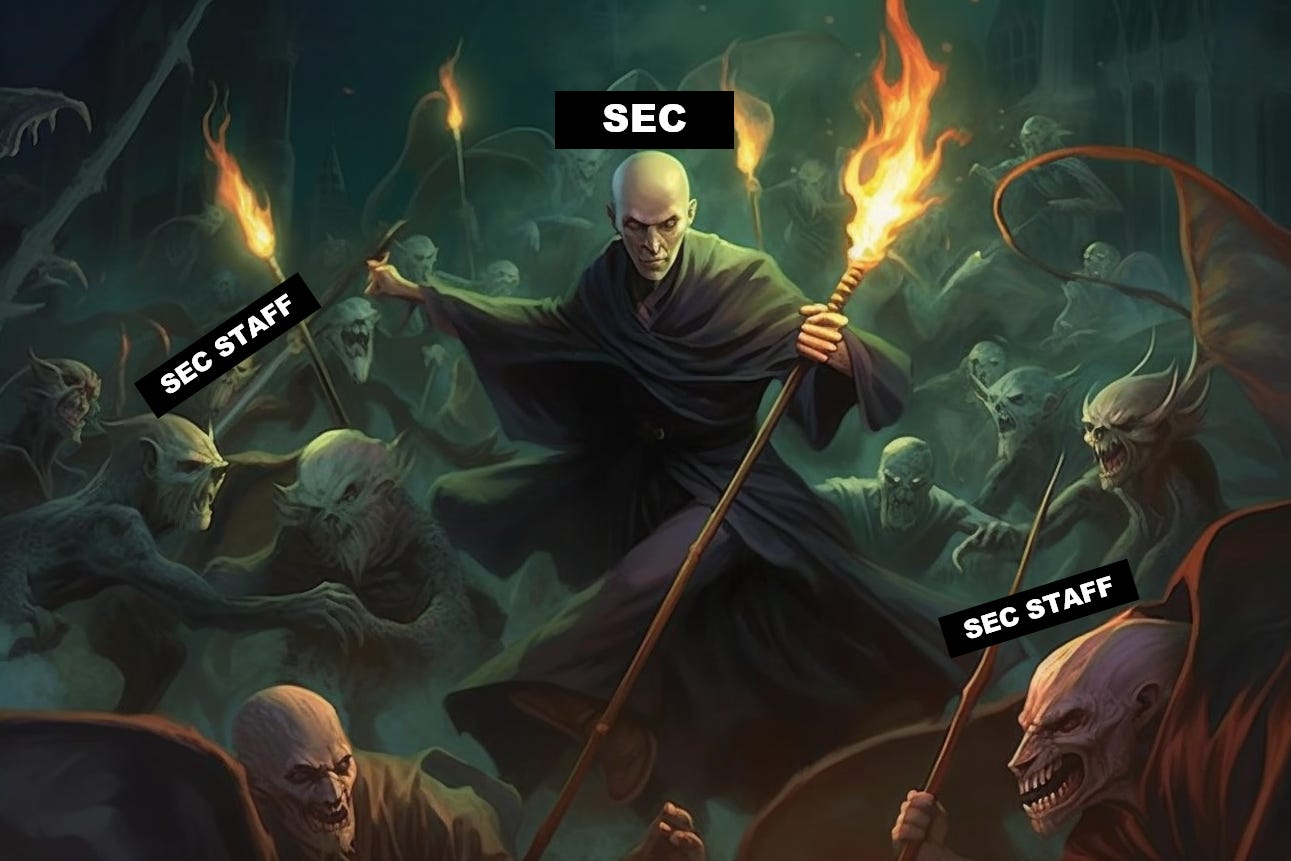The Voldemort Rule
The Regulatory Theory That Must Not Be Named
Is the SEC even relevant?
As we step into a new era of digital currency, the SEC appears to be on a crusade, wielding a sword of regulatory might against the leading crypto exchanges: Binance, Coinbase, and Ripple. The shadow of the SEC looms large, but beneath the surface, a question is brewing - is the SEC's wrath even warranted?
Binance, the largest crypto asset trading platform worldwide, has found itself in the SEC's crosshairs, charged with an assortment of alleged securities law violations. The accusations range from operating unregistered exchanges and broker-dealers to offering and selling unregistered securities. The SEC contends that Binance and its founder Changpeng Zhao have knowingly evaded U.S. securities laws, risking their customers and investors in the pursuit of profits.
But herein lies a darker truth, a regulatory theory that must not be named, the Voldemort Rule, if you will. This rule seems to imply that the SEC is using vague, undefined, unnamed regulations as a weapon in its crusade against crypto exchanges. Rules that shall not be named.
While the charges against Binance are severe, are they merely the result of an agency overstepping its bounds, seeking to control an industry it barely understands?
The Voldemort Rule, named for its elusive and unspoken nature, raises a question: are these charges simply the outcome of an agency attempting to force new, disruptive technologies into the mold of traditional financial regulations? Are the rules being applied even pertinent or correctly interpreted for this nascent industry?
Binance, despite the barrage of accusations, continues to thrive, suggesting that the SEC's actions may be less impactful than they would hope. The crypto giant's persistent success seems to fly in the face of the SEC's attempts to reign in the industry, causing one to question whether the agency's regulations are as potent or relevant as they purport to be.
Like the Voldemort Rule, the SEC's charges against Binance, Coinbase, and Ripple suggest a desire to control and regulate, but do they truly serve the purpose of protecting investors, or are they merely an attempt to assert control over an evolving industry that threatens the status quo?
As we delve deeper into this new era of digital finance, the real question is: does the SEC's current approach to regulation serve the public interest, or is it a manifestation of the fear of change, a desperate clinging to the known at the cost of stifling innovation?
Only time will tell whether the SEC's charges against these crypto exchanges will lead to increased investor protection or simply further confusion and stagnation in a rapidly evolving industry. One thing is clear, however - the unspoken Voldemort Rule will continue to cast a shadow over these proceedings, prompting us to question the real motives and efficacy of the SEC's regulatory overreach.




